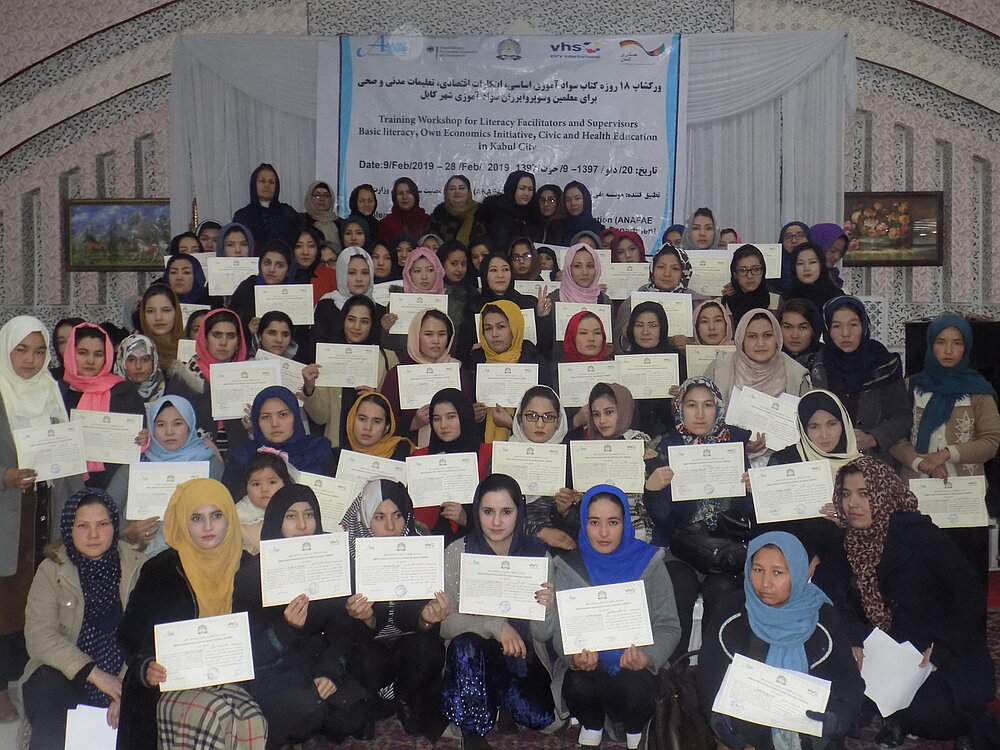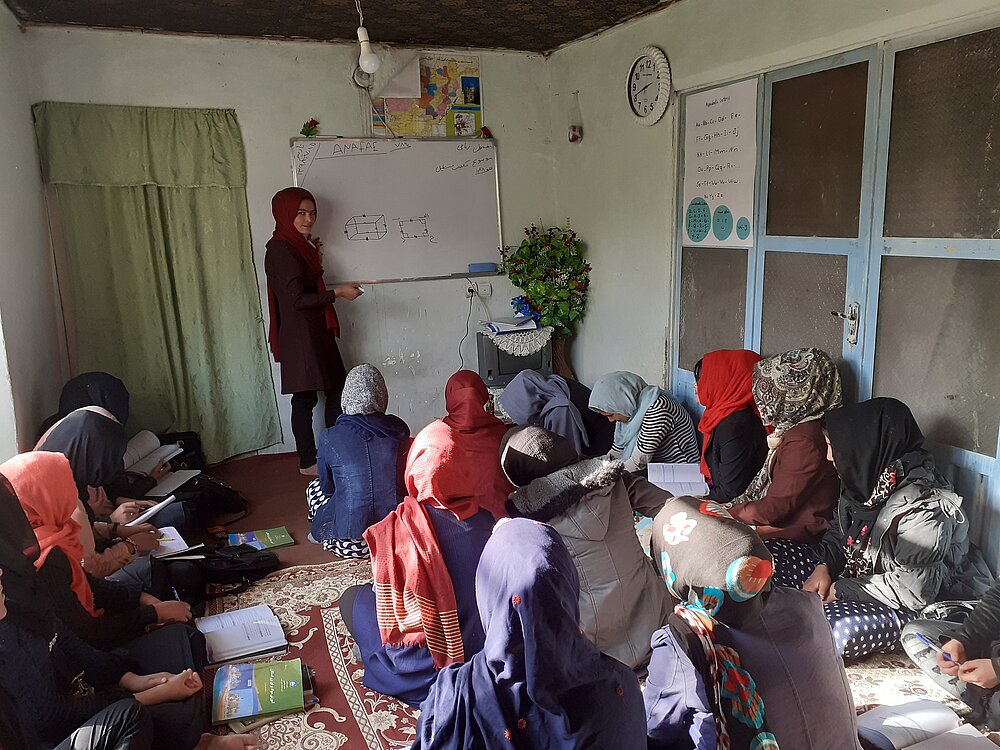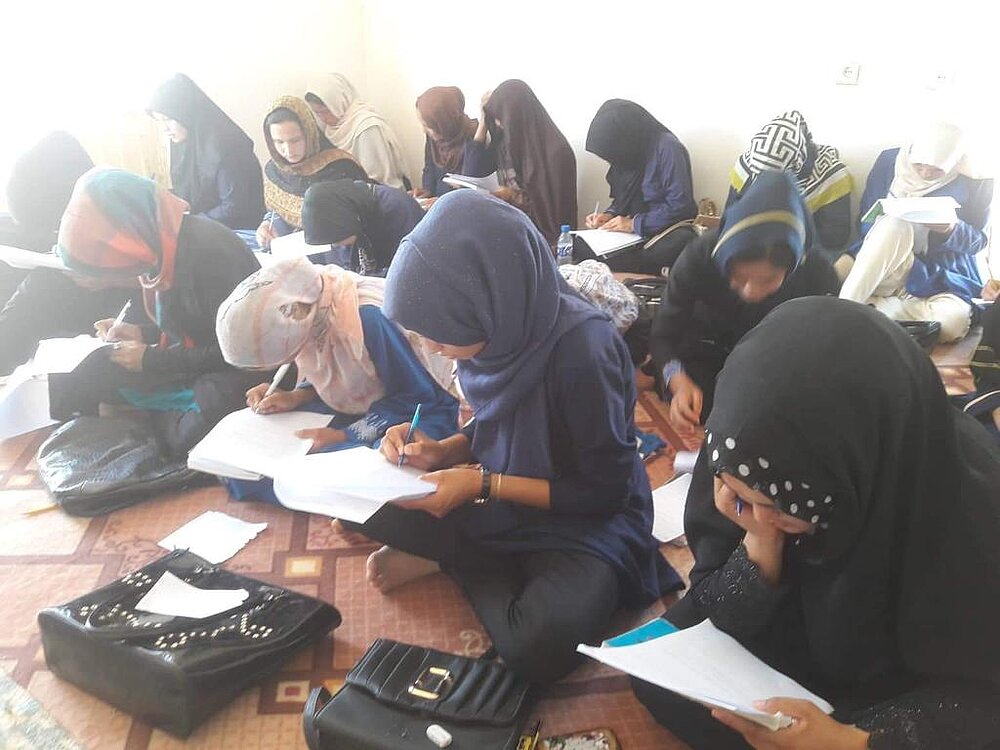The new Taliban-led de-facto government in Afghanistan stopped secondary school education for girls from grade 7 to grade 12. They also introduced strict gender segregation in all education programmes and institutions. In addition, the key funding for the education system, which was heavily dependent on international support, is now on hold.
ALE keeps education open for young women
During the challenging past 12 months, ANAFAE (the partner organization of DVV international) struggled to keep their education programmes open, accommodating them to the strict gender-segregation. The ANAFAE education teams in the adult education centres did much to increase women’s education opportunities in the given situation: They separated rooms and entrances, hired additional female teachers, installed additional equipment with extra costs and coordinated space, teaching staff and their schedules as effectively as possible.
At present all 15 adult education centres of ANAFAE are open.
During the period of great turmoil, from September to December 2021, the number of learners remaining in the formerly flourishing adult education centres was reduced to only 780. The extra efforts of ANAFAE to adjust the education courses to the present education policy of the de-facto government fortunately resulted in an increase in the number of female and male learners so that from January to October 2022 the number of learners increased strongly to 75,625. The percentage of female participation in the education courses is now over 50%. More and more young women, who are not allowed to continue their secondary school education, joined the education programmes of the ANAFAE adult education centres, full of hope to learn something useful for their present situation and for the future.
Beauty parlour courses and STEM subjects
All ANAFAE Community Learning Centres offer courses in Dari or Pashto as well as English language courses, ITC and science courses, but also tailoring courses. This is because young women from traditional families, who are well trained in garment design and tailoring, can earn an income to support their families during the present economic decline.
The beauty parlour courses are also well attended because young women with good skills in skin care, eyebrow and eyeliner styling, tinting of eyelashes, pedicure and manicure, haircutting and hair styling can earn some additional income for their families: They prepare ladies for wedding parties or other family events. In this way they can earn money in an environment in which women are not banned: at their own homes or at the homes of other ladies.
Women also attend complementary courses of math, biology or physics at the ANAFAE X-pert Education Centres. They do not want to forget the knowledge they gathered at school and hope that school education will start again. Some of them also prepare for university admission exams. Just like the Community Learning Centres, the X-pert centres have hired and trained more female teachers. Some of the language courses offer blended learning modules supported by the online learning platform of ANAFAE.
Language and IT courses based on international standards are most popular with young women who still have a job in international projects or in the telecommunication or banking sectors. Many women want to improve their language or ITC competences in view of their possible future studies. Some also want to enhance their employability for jobs in these difficult times. However, many young women in Afghanistan are frustrated and have lost hope. They do not understand why they cannot continue their education, while their brothers can.
Parents protest against the restrictions and, from an Islamic point of view, even religious leaders do not see any reason why girls’ education cannot continue.
The ongoing adult education project of DVV International is one of the last opportunities left for women to safely acquire good education. It is of primary importance to keep these doors open.





